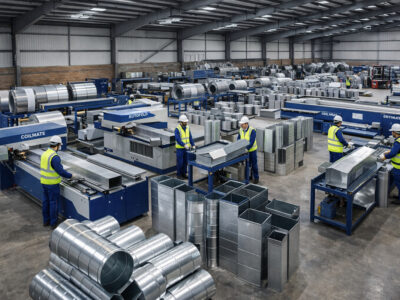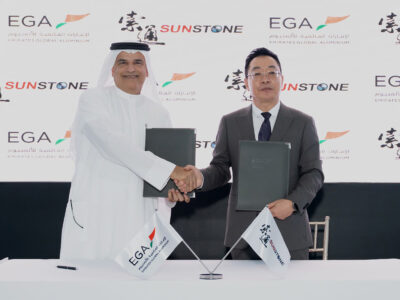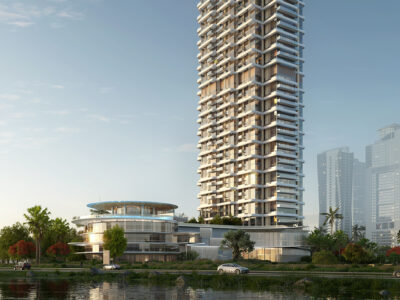Alexander Ejiogu, chief executive officer, MAF Dalkia Middle East, talks to Paul Collett about business wins, how the FM provider is tackling current market conditions and planning for the future real estate upturn.
The MAF Dalkia facilities management portfolio is extensive. What is your current business model, bearing in mind the economic correction?
Our fundamental business model is based on flexibility and adapting our service delivery to the changing needs of our clients. MAF Dalkia delivers an integrated total facilities and energy management solution that enables clients to have one point of contact, which means they can concentrate their resources on their core business.
On the energy management front we feel that, through our team’s combined knowledge and experience, we are leaders in delivering cost effective solutions to the public, private and commercial sectors. We leverage the substantial inherent strengths of our two share holders in the region: both MAF, with its tremendous local knowledge and geographical spread in the Middle East and North Africa, and Dalkia with its huge multi-national presence and industry leadership position, provide us with a unique and stable platform on which to build our future.
The strong relationships we have with our clients enable us to work with them through the difficult economic times, and adapt delivery solutions and service delivery to both meet their changing needs and financial circumstances in challenging times.
Has this led to any recent project wins?
Indeed. We have currently won the following contracts: The Wave in Oman, Muscat. This is a mixed use development combining 4,000 new apartments, town houses and villas, featuring a 300 berth marina, signature golf course, three premier hotels and much more – all over 2.5 million square meters of space.
The scope of work is integrated total facilities management, including infrastructure maintenance and multi-technical and soft services. Omniyat Properties, The Square. This development comprises integrated residential and retail serviced apartments plus a commercial complex. Bayswater, also an Omniyat development, is a commercial tower located at Dubai Business Bay. We have also won the contracts for the Sorbonne University, Abu Dhabi; and Oasis Mall, a Landmark Group project.
As in any economic slowdown the market talks about the lack of liquidity. How will MAF Dalkia fund these project wins?
MAF Dalkia has planned and achieved steady and sustainable growth over the last six to seven years. This model has also given us a strong balance sheet combined with a solid cash flow position built up over the years.We feel that MAF Dalkia is best positioned among its peers to weather the current financial correction and emerge stronger. We are also well placed to take advantage of new business opportunities that will be coming up, and ensure sustained growth through business expansion based on our world class FM Industry model with MEP focused delivery systems.
Business opportunities will be looked at based on sustainable models. We will focus on our core strengths of MEP and multi-technical services, and we continue to be fully backed by both our shareholders on key strategic expansion.
With occupancy significantly down in Dubai, will we see buildings and developments fall in to disrepair?, and who will pay for maintenance and management of these unoccupied buildings?
Although occupancy levels are down, the majority of investors in property see the value in protecting their assts. We are now being approached by clients who are requesting a care and maintenance solution to their buildings, which will provide an economical and practical solution to maintaining the structural fabric and services of the building. Again, with such a discerning marketplace it is how the building is presented to potential tenants that will influence the decision to purchase or lease.
The majority of developers see the development and sale or leasing of property as a long term investment. They are aware that the decisions, painful though they may appear, to maintain their asset will enable them to be ready when any changes do occur in the economic climate to take advantage of potential clients.
It is true that Dubai is facing a lot of challenges in the residential and commercial buildings sector. However, we do not believe that this situation will affect the entire sector. We believe it will be more focused in the newer developments where such problems could surface. Dubai and the UAE is a strong and resilient market and the opportunities that are presented in the industrial, retail, oil and gas and governmental sector will stand the test of time and business maturity, and MAF Dalkia fully intends to aggressively tap into these sectors. For unoccupied buildings, we’ll propose a cost effective maintenance strategy for each client to ensure asset preservation.
How important is the home owner association/FM relationship, and what is the MAF Dalkia methodology to ensure transparency?
MAF Dalkia prefers to work with strata managers and strongly believe in a distinction between the role of FM manager and strata manager. This way, clear lines of responsibility including service level agreements and key performance indicators will be drawn. Owners associations, where applicable, can deal with the strata manager and they will get clear visibility on the quality of their asset maintenance without being embroiled in the day-to-day activities.
How will FM shape the future of the Middle East’s built environment?
As the FM market here matures, there will be substantially more involvement in the design and specification of buildings to ensure management of long term maintenance costs and hence service charges. With so much property available, the quality of FM service provision is becoming an important part of tenant’s selection process.
With the introduction of an FM association, I believe more emphasis will be given to FM standards and best practises. Sustainability and green building concepts will be better understood, and the region will find the inherent value in any investment.





